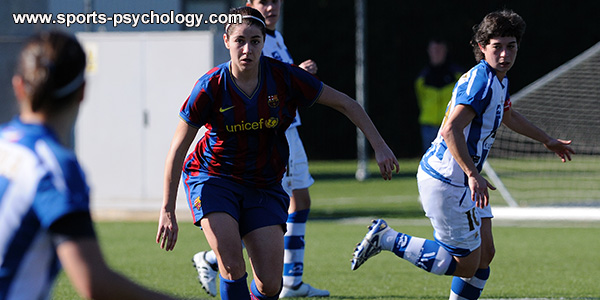How to Play More Confidently in Sports
Have you been disappointed after a game because you lost, or thought you played poorly?
Do you recognize your performance as either good or bad?
Do you give yourself credit where credit is due?
Australia lost to France on Saturday 2-1 in their World Cup opener.
Though, the team seemed to have transformed from their pre-tournament play.
Australia may have lost but played exceptionally well.
The Coach Said:
“I was disappointed. But I think we can be proud of the way we played against one of the best teams in the world.”
“Nobody expected that we could play like this against France. I think there were a lot of moments they didn’t know what to do any more…”
The start for Australia was shaky, but they worked their way back into the game and had a chance to score before halftime.
“I cannot blame any of my players, I can only give them compliments,” said Australia coach, Van Marwijk.
The Australian team lost to France in their opener, though they recognized their extreme efforts in the game and walked off the field proud of their performance.
I was working with a soccer player once and he struggled to accurately analyze his performance in a game.
If his team lost, he thought he did poorly and didn’t help them win.
Even if his team won, he thought that one of two of his mistakes equaled a “poor performance.”
After each game, I’d ask him how it went; how his team did, and how he played?
Every time he responded with something negative regarding his performance.
This Negative Thinking Directly Affected his Confidence
I would then ask what he did well…
After thinking, he always had an answer. There was continually something good he could pick out from the game.
Even if he sat on the bench, he would say he was positive and supported his teammates throughout the game.
I asked him to start writing down two things that went well after each practice and game.
As humans, we tend to focus on the negative before the positive.
This Phenomenon is Similar in Soccer, and All Aspects of Life
Athletes reflect on their mistakes or parts of the game that were rough before they acknowledge their strengths.
This method can hurt your confidence a lot.
When you’re able to change your perception of a situation, you can change your reality.
If you start pointing out positives from practices and games, you begin to see yourself in a brighter light.
Recognizing what you did well after each performance also works to improve your sports confidence.
The Australia soccer coach, Van Marwijk, said that his team, “Showed guts and showed they could be themselves.” He mentioned, “The next game is another game, but this gives us confidence.”
Even though Australia lost, Van Marwijk and his team understood they played well and credited their performance.
This positive post-game recognition boosted their confidence heading into the next game.
You can always find a “good” in your performance following a practice or game.
Write down one or two things that went well for you.
Doing this will help change the way you think or feel about your performance, and also improve your confidence.
Learn all our strategies for improving confidence with The Confident Athlete audio and workbook program
Related Sports Psychology Articles:
- How to Develop a Positive Mindset in Sports
- Using Positive Energy to Stay Motivated in Practices
- Developing Positive Practice Habits
Boost Your Self-Confidence With Expert Mental Game Coaching!
Expert mental game coach Dr. Patrick Cohn can help you overcome your mental game issues in sports with personal coaching. We do mental training with athletes of all levels and ages–about 12 years and up. And mental training is not just for elite or professional athletes.
You can work with us in Orlando, Florida or via Skype, FaceTime, or telephone from anywhere in the world. Call us toll free at 888-742-7225 or contact us for more information about the different coaching programs we offer
If you are interested in mental coaching, try our free 15-minute introductory session. Contact Peak Performance Sports today with your name, sport, and what mental game challenges you are having.
You can learn more about our mental coaching programs for athletes here.

